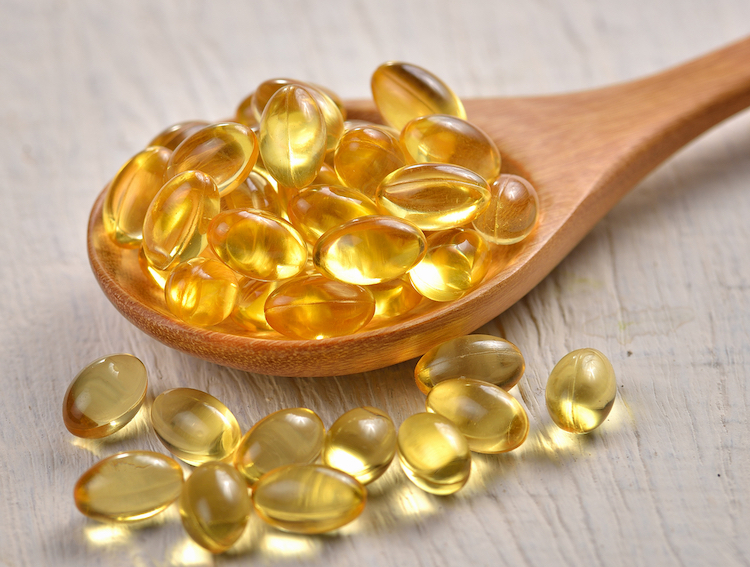3 Easy Ways To Increase Fertility
Fertility can be a sensitive topic, one that’s subject to differing opinions, a wide range of emotions, and individual opinions. But one fertility fact is generally agreed upon: whether you’re a man or a woman, the loss of your ability to reproduce can be a strong indicator of other health issues.
For example, poor semen quality has been shown to link to other health issues in men, and hypothyroidism can affect menstruation and ovulation. Research has suggested definite links between reproductive capability and certain health issues, but there is a constantly growing body of compelling research, some of which includes conflicting information regarding fertility. When looking to conceive, it can be tough to determine if activities like bike rides or ice baths can negatively affect your “swimmers,” or if sports have the ability to harm your fertility.
But there are three, generally agreed upon important categories to explore and consider if you’re looking to enhance your fertility: Supplementation; reducing any exposure to plastic products, chemical substances, and electronics; and maintain proper levels of sleep and decreasing stress.

Increase Supplementation
Poor nutrition can play a significant role when it comes to infertility. Supplementing a healthy, whole-food diet with high-quality vitamins, minerals, and herbs is important when trying to conceive. A major factor in infertility is not getting enough essential fats, as well as ensuring your diet has a low intake of whole amino acids.
To help with optimal fertility, consider adding the following supplements to your daily diet:
• Whole foods vitamin C (taking about 2 grams a day), can help promote the absorption of iron and the production of progesterone
• Vitamin D (2000 IU a day) studies have shown that insufficient levels of vitamin D in the blood can be associated with infertility and miscarriage.
• Fish oil (taking 6-8 grams a day): The high omega-3 fatty acid content can help boost proper hormone production, reduce inflammation, and provide essential fatty acids.
Regular use of the following may also help boost fertility:
• Folate (2000-5000mcg/day): Folate (not folic acid) assists in sperm formulation, ovulation, and cell division.
• Brazil nuts (in shell): Brazil nuts contain high levels of other minerals such as copper, magnesium, manganese, potassium, calcium, iron, phosphorus, and zinc, all of which play a role in fertility.
• Red raspberry leaf: Red raspberry leaf is a well-known herb for fertility that’s proven effective as a uterine tonic and for strengthening the pelvis. It can also be used to treat morning sickness.
• Shellfish or a good zinc supplement: This is best to be consumed when combined with a B-vitamin complex.
• Nettle leaf: Nettle leaf is often included in testosterone-enhancing supplements for men.
• Leucine: Leucine has been found to help increase sperm mobility; may increase maternal antioxidant capacity and immune function.
• Dandelion: Dandelion can cleanse your body and detox your liver.
• Red clover: Red clover assists in balancing hormones and can help restore fertility.
• Vitex/chaste tree berry: This is commonly found in testosterone boosting supplements for men. It helps optimize pituitary gland functioning; in women, it aids in lengthening the luteal phase, lowering prolactin, and increasing the hormone progesterone.

Reduce Exposure to Plastics, Chemical Substances, And Electronics
To optimize fertility – and health in general –it’s recommended to avoid the following plastics and chemical substances:
• BPA (Bisphenol A) is normally found in cosmetics and plastics. It can lower levels of testosterone greatly and can cause erectile dysfunction.
• BPS (Bisphenol S) is found in thermal receipts, plastics, and household dust. It can have the same negative endocrine effects as BPA.
• Phthalates is found in plastics and cosmetics. Men that have high phthalates in the urine usually also have lower levels of testosterone.
• Parabens is found in shampoos, cosmetics, moisturizers, toothpastes, and suntan lotions. It can elevate estrogen levels in men and women.
• Triclosan/triclocarban is found in antibacterial dilutants, soaps, and hand sanitizers. It can lower testosterone levels in men by disrupting the biosynthesis of testosterone in Leydig cells.
• Benzophenones (BP-1, BP-2 & BP-3) is found mainly in sunscreens. It may lower testosterone by antagonizing androgen receptors and blocking enzymes converting other androgens to testosterone.
Also, it may be helpful to be extra careful about regular electronic devices that we use like phones or laptops. As they emit high levels of electromagnetic fields (EMFs), some research has found that using a laptop directly on your lap, especially while using WiFi, has been associated with lower sperm count and motility, and can cause sperm DNA damage.

Improve Sleep And Reduce Stress
Sleep, or lack of it, plays a major role in reproductive capacity. Studies have shown that women with low melatonin levels and low serotonin levels have a shorter luteal phase (time between ovulation and menstruation). A shorter luteal phase means a lower chance of conceiving.
Stress indicates to your body that it is not in a situation where it should be producing offspring. When you’re in a stressful state akin to running from a lion, the body wants to down-regulate fertility – your body isn’t built to bring children into the world in a time of stress. To reduce your stress level, consider fundamentals such as walking, breathing clean air, eating well, and caring for your spirit and soul. if you work these practices into your daily life, you could improve your chances of bettering your fertility, enjoying better health, and experiencing more generalized happiness.
Keep in mind that none of this information is to be construed as medical advice, and that you should always consult with your personal health practitioner before embarking on any new health regimes of any kind.
